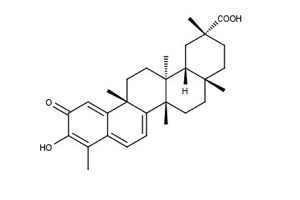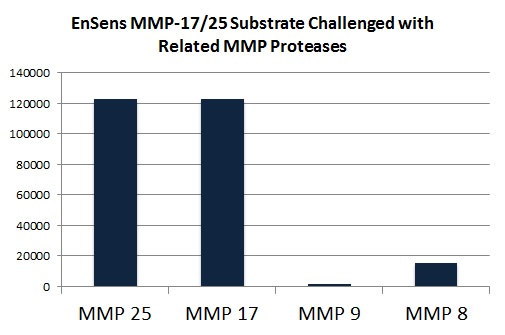The World Health Organization (WHO) estimated in 2008 that 1.4 billion adults worldwide were overweight and of these 500 million were obese with risks for developing type 2 diabetes, hypertension and cardio-vascular diseases. The discovery of the adipocyte hormone, Leptin, brought to light the possibility that its anorectic effect could be harnessed for treating the epidemic of obesity. However up until now Leptin resistance has been an unsurmountable problem and the use of this adipokine for suppressing food intake has failed. In a recent issue of Cell, Junli Liu and coworkers at Harvard Medical School report that Celastrol, a natural product isolated from the Thunder God Vine (Tripterygium Wilfordi), is a powerful antiobesity agent.
To reach this conclusion, Liu et al. implemented a novel approach to identify small molecules that could increase Leptin sensitivity via aleviating Endoplamic Reticulum stress (ER stress). (1)

This innovative in silico drug screening approach resulted in the discovery that, a well known 20S Proteasome inhibitor, Celastrol, suppressed food intake leading to up to 45% weight loss in hyperleptinemic diet-induced obese mice. Leptin sensitizing effect of Celestrol appeared to be mediated via the STAT3 cell signaling pathway.
If Celastrol works in humans the way it does in mice, it could result in a promising new pharmacological approach to obesity.
Where to find Celastrol for R&D applications?
Focus Biomolecules provides researchers with 98% pure (by TLC) Celastrol in standard sizes or in bulk (Cat. nr 10-2187).
In addition to act as a Leptin sensitizing agent, Celastrol (CAS nr 34157-83-0) is also known to inhibit NFkB pathway (IC50=270 nM) and to exert potent antioxidant and anti-inflammatory activity. Celastrol induces heat shock response and cytoprotection in various cells. This cell permeable small molecule also inhibits 20S proteasome chymotrypsin activity (IC50=2.5 µM).
Looking for more 20S Proteasome inhibitors?

7 selective 20S proteasome inhibitors can easily been obtained via various sources such as tebu-bio in Europe:
- Aclacinomycin A (CAS nr 57576-44-0) – Selectively inhibits the chymotrypsin-like activity of the 20S proteasome (Cat. nr 10-1099)
- Bortezomib (CAS nr 179324-69-7) – Also inhibits TNF synthesis and FGF-induced angiogenesis (Cat. nr 10-2120 )
- Carfilzomib (CAS nr 868540-17-4) – Irreversible synthetic analog of epoxomcin (Cat. nr 10-1477)
- Epoxomicin (CAS nr 134381-21-8) – Cell permeable, irreversibly inhibits the 20S proteasome and does not inhibit non-proteasomal proteases (ex. Papain, Chymotrypsin, Trypsin, Calpain and Cathepsin B at concentrations up to 50 µM) – (Cat. nr 10-1384)
- Lactacystin (CAS nr 133343-34-7) – Inhibits 3 proteolytic activities of the proteasome: Chymotrypsin-like activity is inhibited most potently followed by Trypsin-like activity and Peptidyl-glutamyl peptide hydrolytic activity at a weak lower (Cat. nr 10-1314)
- MG-132 (CAS nr 133407-82-6) – Cell permeable, stimulates autophagy and induces heat shock response. (Cat. nr 10-1309)
Adipokine research reagents and lab services in obesity & diabetes
Over the last years, adipokines have been at the center of numerous research programs.
In parallel, high quality research reagents have been progressively released. This is for example the case for recombinant adipokines (including Leptin) and immuno-assays aiming at profiling or quantifying adipokines. These latter can even be outsourced to Contract Research Organisations (CROs). In Europe, tebu-bio’s laboratories are the only ones to be certified by Quansys BioSciences and Raybiotech for using their Multiplex quantification and protein profiling platforms.
Source:
- Liu J. et al. ” Treatment of Obesity with Celastrol” (2015) Cell, May 21, 999-1011. DOI: http://dx.doi.org/10.1016/j.cell.2015.05.011
What about you?
Interested in research programs involved in metabolic disorders, diabetes and obesity? Working on STAT pathways or adipokines?
Feel free to leave your comment below or to contact tebu-bio’s experts for further information regarding innovative research solutions.


